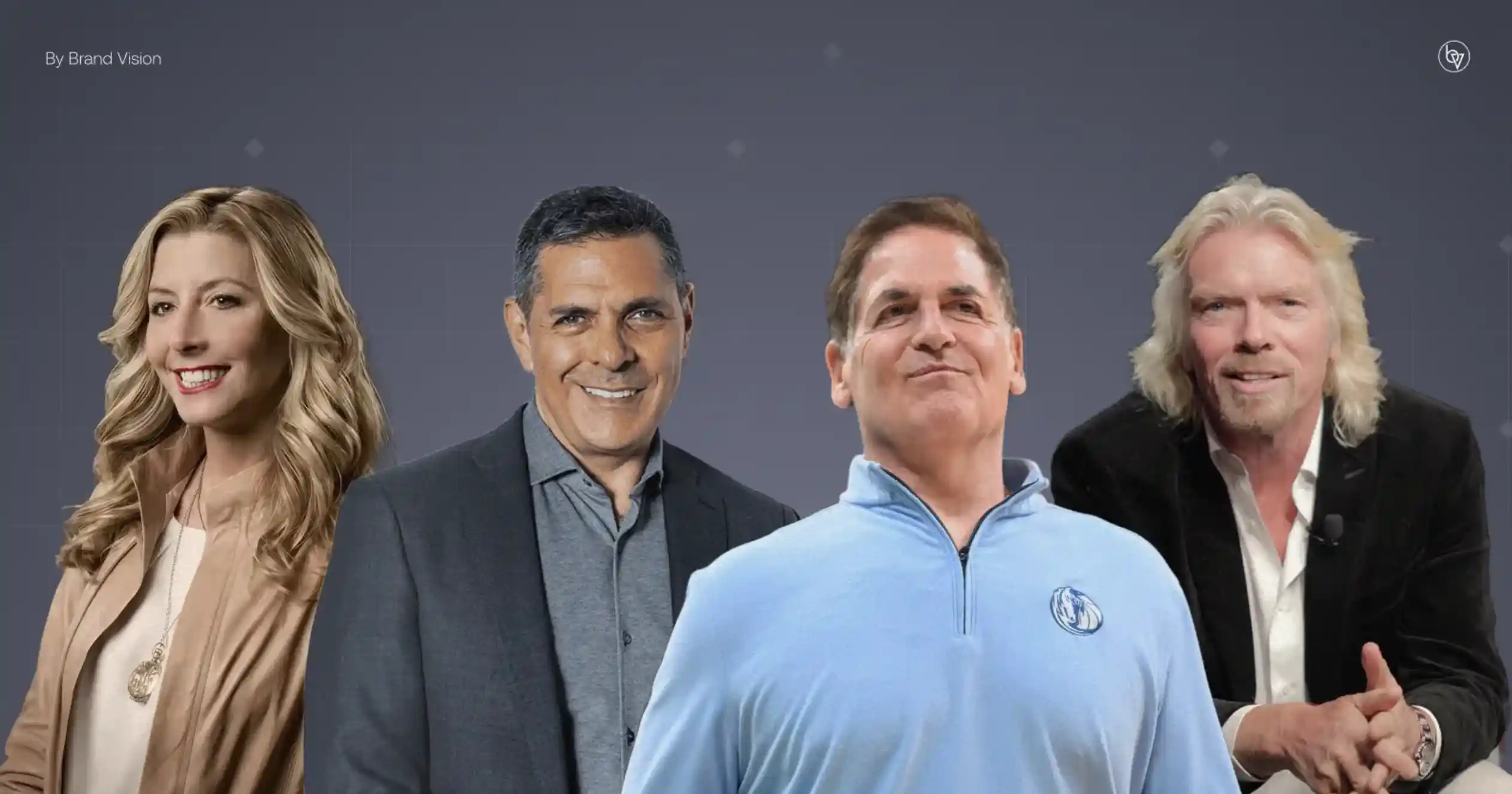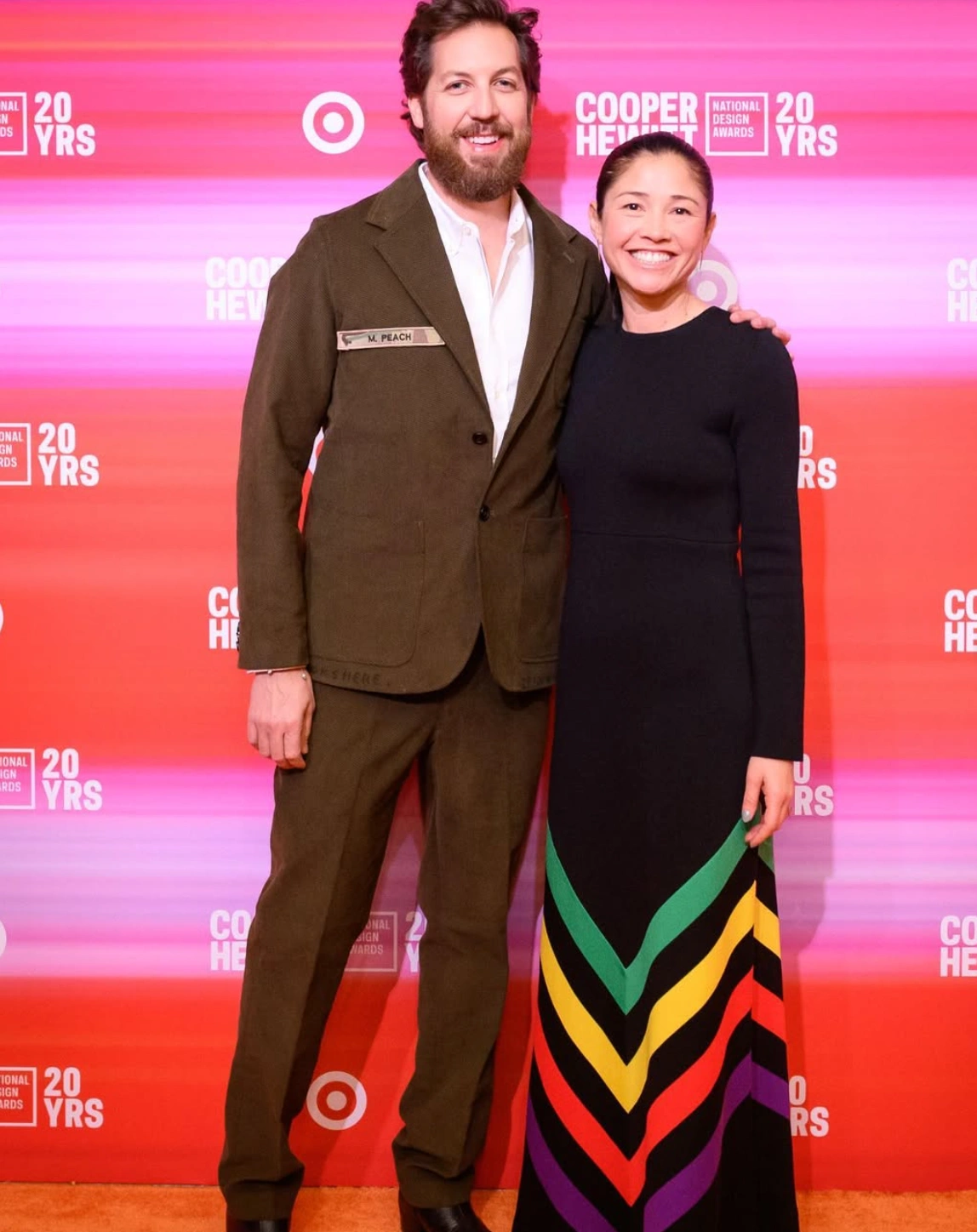Richest Shark Tank Investor in 2025
Updated on
Published on

From a six-billion-dollar mogul who sold a tech company to Yahoo before the dot-com bubble burst, to a shapewear founder who redefined retail and created a billion-dollar brand, the investors of Shark Tank represent the apex of American entrepreneurship. This exclusive ranking reveals the updated 2025 net worth of every core and guest Shark, showcasing a cast of billionaires and nine-figure operators whose fortunes—driven by tech exits, global brand power, and relentless deal-making—continue to set the standard for success in the public eye. September–October updates across credible business trackers refined estimates for each investor. Below are the richest Shark Tank investors by 2025 net worth (guest sharks included).
At a glance (ranking by estimated 2025 net worth)
- Mark Cuban — ~$6.0B (core Shark) (Forbes)
- Richard Branson — ~$3.0B (guest Shark) (Forbes)
- Daniel Lubetzky — ~$2.2B (recurring guest) (Forbes)
- Sara Blakely — ~$1.3B (guest) (Forbes)
- Chris Sacca — ~$1.2B (guest) (Forbes)
- Kendra Scott — ~$900M (guest) (Forbes)
- Emma Grede — ~$405M (guest) (Forbes list; Forbes profile)
- Kevin O’Leary — ~$400M (core) (Parade; Fortune)
- Alex Rodriguez — ~$350M (guest) (Sportskeeda)
- Daymond John — ~$350M (core) (Parade; Fortune)
1. Mark Cuban — ~$6.0B
Mark Cuban’s net worth traces to Broadcast.com’s sale to Yahoo in 1999, compounded by decades of tech, media, and healthcare bets—and the headline exit from the Dallas Mavericks while retaining basketball-ops influence. On “Shark Tank,” he normalized founder-friendly terms (advisory support, customer intros) and helped popularize data-driven product testing on TV. His legacy is equal parts outspoken operator and liquidity strategist who kept reinvesting through cycles. (Forbes)
- Built a modern playbook for post-exit operators who keep compounding via private deals.
- Cultural impact: turned venture jargon (CAC/LTV, A/B tests) into prime-time language for Main Street founders.

2. Richard Branson — ~$3.0B
Branson’s Virgin umbrella spans airlines, travel, finance, media, health clubs, and space; the brand equity he built around adventure and customer experience remains a global case study. Despite volatility in aviation and space tourism, he endures as a rare founder who made “brand personality” a growth asset across industries. His legacy is the template for lifestyle-led conglomerates that scale by trust and storytelling. (Forbes)
- Codified the “experience moat” long before DTC—service swagger as strategy.
- Philanthropy and exploration (record attempts, Virgin Unite) reinforced the Virgin mythos.
3. Daniel Lubetzky — ~$2.2B
The KIND Snacks founder parlayed a mission-driven CPG play into a multibillion exit to Mars, then used Equilibra (his family office) to seed “AND” businesses—good for you and good for society. On “Shark Tank,” he often backs thoughtful supply-chain stories and inclusive hiring models. His legacy: proving purpose can be a profit engine at scale without drifting into performative branding. (Forbes)
- Showed retailer-friendly velocity + values can coexist in center-aisle CPG.
- Active post-exit operator who coaches founders on margin discipline and brand narrative.
4. Sara Blakely — ~$1.3B
Blakely bootstrapped Spanx from a $5,000 idea into a global category; the 2021 majority sale to Blackstone cemented her billionaire status while she stayed on as Executive Chair. She reframed shapewear from concealment to confidence and broadened the range to apparel and active. Legacy-wise, she’s a masterclass in scrappy distribution, radical customer empathy, and women-led wealth creation. (Forbes)
- Iconic founder story that still mentors playbooks: demo-driven sales, Nordstrom seeding, viral word-of-mouth.
- Philanthropy (Spanx/Blakely Foundation) intertwined with brand voice around female empowerment.
5. Chris Sacca — ~$1.2B
Through Lowercase Capital, Sacca placed early checks in Twitter, Uber, Instagram, and more—defining the cultural cachet of seed investing in the 2010s. After stepping back, he returned with climate-focused vehicles and selective public commentary. His legacy is the archetype of the hands-on seed investor who blends product sense, distribution insights, and founder psychology. (Forbes)
- Helped normalize cap-table literacy for founders on TV, demystifying pro-rata, secondaries, and dilution.
- Proof that thesis evolution (from social/mobile to climate) keeps an investor relevant across waves.

6. Kendra Scott — ~$900M
Scott scaled a jewelry brand from a spare-room startup to a nationwide omni-channel retailer with color-bar customization, community events, and store design as marketing. After PE investment and a CEO transition, she remains Executive Chair and brand oracle. Her legacy is retail as hospitality—turning stores into social spaces that mint superfans. (Forbes)
- Pioneered experiential retail long before it was a buzzword.
- Built a philanthropy-in-retail loop (Kendra Gives Back) that drives loyalty and cause impact.
7. Emma Grede — ~$405M
A founding partner of SKIMS and cofounder/CEO of Good American, Grede stitched together influencer-era brand building with rigorous merchandising and inclusive sizing as a default, not a campaign. She’s also behind Safely (home care) and high-visibility partnerships. Her legacy: operationalizing celebrity gravity into durable, data-fed, multi-brand houses. (Forbes list; Forbes profile)
- Elevated “fit for all” from tagline to line-planning and inventory allocation.
- Blends creator economy instincts with disciplined retail math (sell-through, returns, size curves).

8. Kevin O’Leary — ~$400M
“Mr. Wonderful” cashed out of software (SoftKey/The Learning Company) and turned royalties, media, and fund vehicles into a diversified portfolio. On-air, he made unit economics, licensing, and dividend logic pop-culture concepts—often contrarian but useful. His legacy: mainstreaming cash-flow discipline for small businesses chasing viral moments. (Parade; Fortune)
- Pushed royalty/LIC models as capital-light growth for founders who can’t scale inventory.
- Remains a lightning rod whose tough-love framing shapes negotiations.
9. Alex Rodriguez — ~$350M
Beyond a Hall-of-Fame-caliber MLB career, A-Rod built a real-estate and private-equity platform (A-Rod Corp), media ventures, and major-league ownership stakes alongside Marc Lore. As a guest Shark, he brings athlete-operator credibility and fan-economy instincts. His legacy: the modern athlete-investor blueprint that converts fame into long-run cash-flow assets. (Sportskeeda)
- Early mover on athlete-led SPVs and real-estate syndications.
- Bridges sports IP with consumer deals (fitness, wellness, fan engagement).

10. Daymond John — ~$350M
From FUBU’s “For Us, By Us” origins to a diversified portfolio of lifestyle brands, speaking, and licensing, John champions scrappy founders and culture-first positioning. On “Shark Tank,” he’s the patron saint of product-market fit by community—testing on the block before scaling to the mall. His legacy: hip-hop’s playbook for brand creation brought into mainstream entrepreneurship. (Parade; Fortune)
- Pioneered influencer seeding before “influencer” existed—street teams, artists, placement.
- Continues to mentor founders on margin stacking and channel discipline.
The Biggest Shark
This definitive ranking of the richest Shark Tank investors reveals the extraordinary wealth of the moguls, who range from media titans to retail disruptors. Topping the list with a commanding ∼$6.0 billion is tech titan Mark Cuban. However, the real story lies in the staggering net worth of guests like ∼$3.0billion adventurer Richard Branson and KIND Snacks founder ∼$2.2 billion Daniel Lubetzky. Whether built on tech sales, global brand equity, or scrappy bootstrapping, this is the definitive breakdown of the billionaires and millionaires whose financial clout makes them the most powerful decision-makers on TV.
FAQ
Who is the richest Shark Tank investor right now?
Mark Cuban, at about 6.0 billion USD as of September 2, 2025. (Forbes)
Who is the richest female Shark Tank investor?
Sara Blakely, at about 1.3 billion USD in 2025. (Forbes)
Do TV appearance fees drive these net worths?
No. TV and speaking contribute, but equity stakes and exits are the primary drivers for top sharks. (Forbes) (WSJ)







